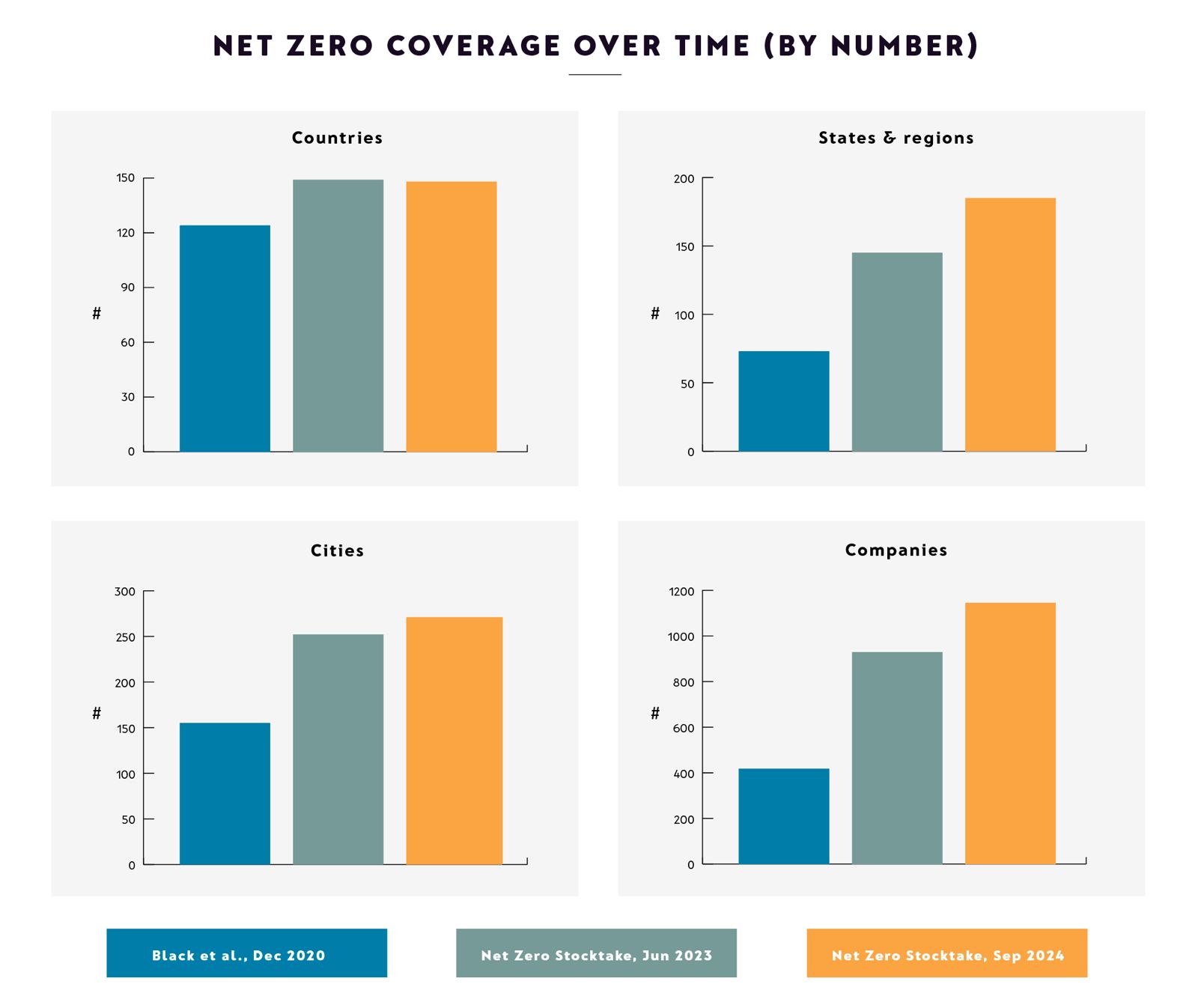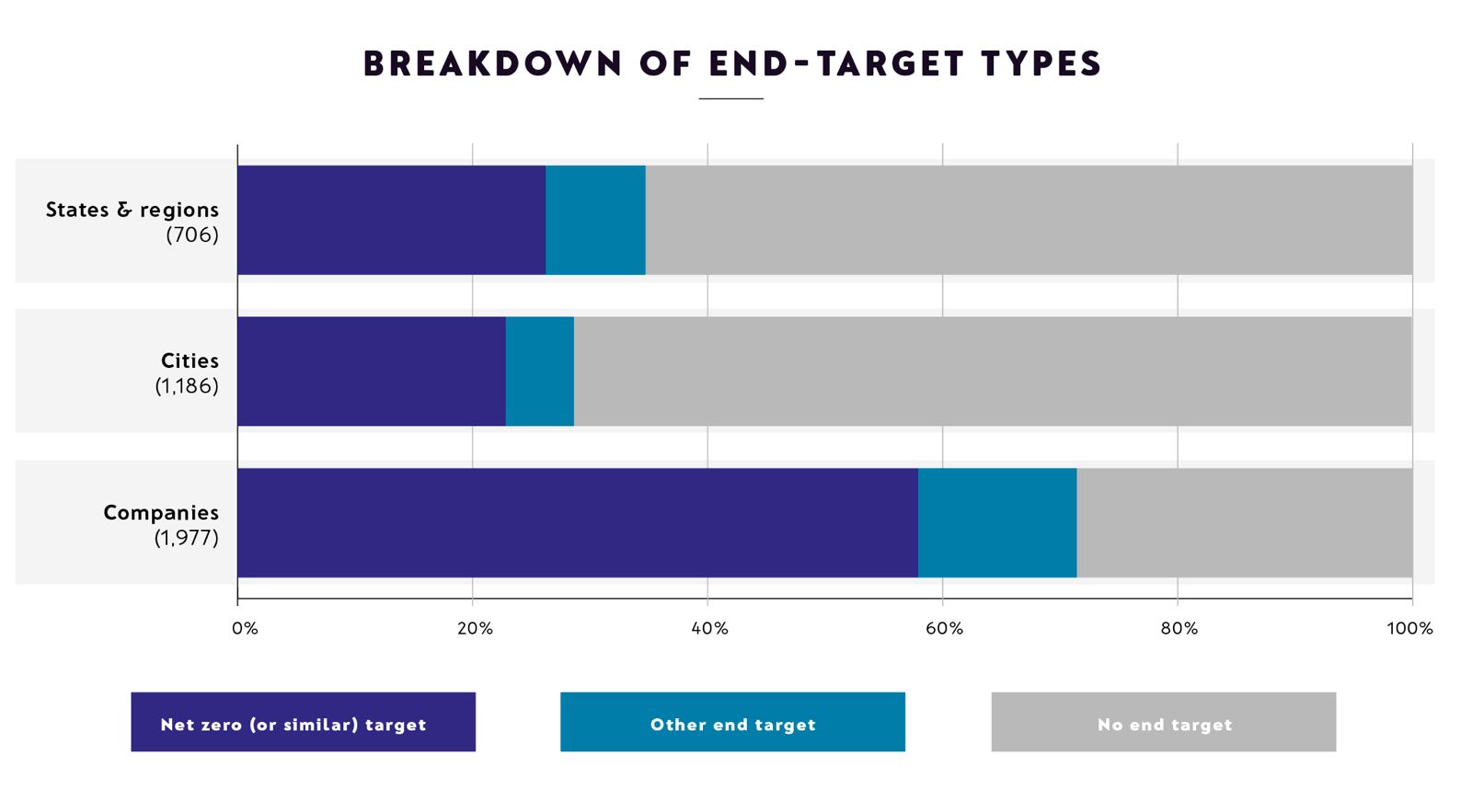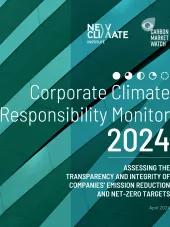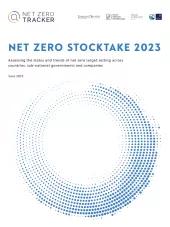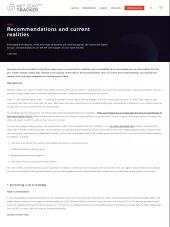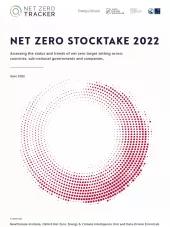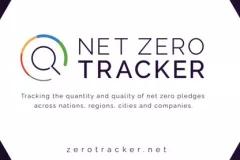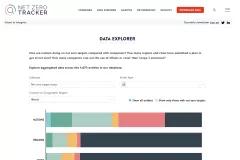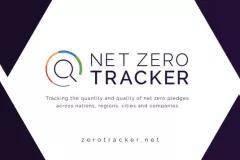Regional governments key to next round of national carbon-cutting plans
As the climate crisis accelerates, the Net Zero Tracker consortium identifies in their latest Stocktake report a commitment gap across cities, states and regions, which is holding back the necessary economy-wide transition.
The Net Zero Tracker’s annual assessment of the intent and integrity of global climate commitments shows only a modest increase in net zero targets set by subnational governments (states and regions, and cities) in the past year.
Key findings:
The Stocktake finds an increasing number of robust non-state (regions, cities and company) net zero targets and implementation plans, but with persistent gaps - and slow progress in net zero target integrity across all non-state entity types over the last two years.
- The number of companies, cities, and regions with net zero targets increased, up 23%, 8% and 28%, respectively, since the previous Net Zero Stocktake in June 2023.
- However, more than 40% of major non-state and subnational actors still do not have any kind of target to reduce their emissions.
- On measures of integrity, there has been limited improvement in national, subnational and company net zero strategies over the past eighteen months.
- Regional governments should improve vertical alignment with national goals on short and long-term target setting, including policies that support net zero implementation.
- Members of the Race to Zero, led by the UN Climate Change High-Level Champions, perform better than non-members on key elements of good net zero practice.
- The number of company net zero targets meeting all minimum levels of integrity has increased 63% since June 2023, but the absolute number remains low (61 of 1,145).
However, the report calls for all cities, states and regions to translate their wide-ranging authority to establish and enforce policies and regulations into clear net zero plans.

